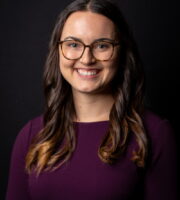
Professor says she’s seen a ‘surge in interest’ from students
A new master’s degree in witchcraft, magic, and occult science is scheduled to be offered September 2024 at the University of Exeter in England as faculty cite growing student interest.
The new program will explore “specific interests within the long and diverse history of esotericism, witchcraft, ritual magic, occult science, and related topics,” and “build interdisciplinary expertise,” according to the university website.
Students will study history, literature, philosophy, archaeology, sociology, psychology, drama, and religion to understand “the role of magic on the west and east,” The Guardian reported.
“A recent surge in interest in magic and the occult inside and outside academia lies at the heart of the most urgent questions of our society,” Professor Emily Selove, director of the new program, told the newspaper.
The new post-graduate program will be housed within the university’s Institute of Arab and Islamic Studies. The placement will help students understand “the Arabo-Islamic cultural heritage back where it belongs” with “decolonisation, the exploration of alternative epistemologies, feminism, and anti-racism…at the core” of the program, according to its website.
The university refused to comment to The College Fix when asked about the new program, including how many students it anticipates will participate and why it believes the new major is unique and beneficial.
Selove told the BBC the new program “will allow people to re-examine the assumption that the West is the place of rationalism and science, while the rest of the world is in a place of magic and superstition.”
The practices of witchcraft and magic have been growing in recent years.
In 2017, a Market Watch article began with the headline, “Why millennials are ditching religion for witchcraft and astrology.” The report cited a Pew Research study at the time that found 25 percent of Americans identify with no religion, up from 18 percent in 2011.
Furthermore, a 2014 National Science Foundation poll found nearly half of Americans say astrology is either “very scientific” or “sort of scientific,” up from about one third in 2010. The government foundation describes astrology as “pseudoscience.”
A 2022 census report also showed a rise in the related practices of paganism and wicca in the United Kingdom, The Guardian reported.
Meanwhile, this fall, the NYU Steinhardt Department of Art and Art Professions hosted a sold-out Occult Humanities Conference in coordination with the Witch Wave Podcast. Sessions included “Witch Houses: The Magical Homes of the Matriarchy” and “Preserving and Presenting the Occult.”
Commenting on the trend, Albert Mohler, president of the Southern Baptist Theological Seminary in Kentucky, said he believes witchcraft studies programs like the one at Exeter will spread “like a virus” to other higher education institutions across the world.
“This is what happens when society is progressively evacuated of Christian content,” Mohler said in his Oct. 18 podcast The Briefing. “The resulting space is not a vacuum.”
Another way to describe witchcraft and the occult is “ancient paganism,” which “feeds so many of the obsessions of a secular culture right now: obsessions about gender, obsessions about sexuality,” Mohler said.
Last chance to support student journalists during our Back to School fundraising campaign! We’re very close to our goal of $25,000. The deadline for the matching offer is quickly approaching so please donate by Oct. 31 to help us meet the goal. Thank you!
MORE: More students, young Americans turn to paganism
IMAGE: Different Nata / Shutterstock





Please join the conversation about our stories on Facebook, Twitter, Instagram, Reddit, MeWe, Rumble, Gab, Minds and Gettr.